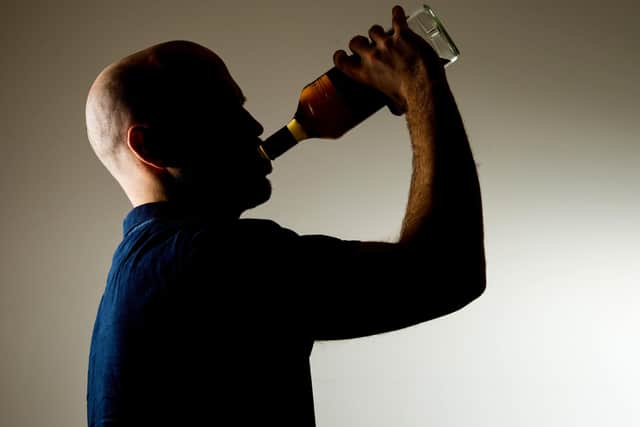Record alcohol deaths in NI but service shortfall concerns
and live on Freeview channel 276
The latest available figures show there were 336 deaths in 2019 – the highest on record and an increase of 18% on 2018.
It is also a third higher than ten years ago.
According to the RCPNI, Northern Ireland has a “dismal record” on alcohol deaths, and although there is currently access to inpatient addiction services across all health trusts, bed numbers have been reduced while the coronavirus pandemic is ongoing and not all trusts have access to community-based detoxes.


Advertisement
Hide AdAdvertisement
Hide AdThe locally based services, organised by a community addiction service and a person’s GP, are recommended by NICE for people who drink more than 15 units of alcohol a day. This reduces the demand on inpatient beds and waiting times – currently more than two months due to the pandemic.
Now, RCPsych NI is calling for more access to these services to help reduce the death rate and to free up hospital beds.
In a response to the Department for Health’s Draft Drug and Alcohol Strategy, the psychiatrists’ body is calling for a regional plan for community-based assisted withdrawal services which “would give greater access to all”.
The Western Trust in Londonderry is the only trust currently offering such community-detox services and it receives around 400 enquiries from across the region each year.
Advertisement
Hide AdAdvertisement
Hide AdDr Donna Mullen, chair of the RCPsych NI addictions faculty, said: “Northern Ireland has had a long-standing problem with alcohol addiction.
“The truth is alcohol addiction, whether living through a pandemic or not, shatters the lives of individuals and their families, but treatment is available and can be effective. We know that alcohol addiction is sometimes overlooked by a focus on drug addiction – when addictions services are planned.”
A case study highlighted by the RCPsych NI features a woman in her 40s who contacted her GP as she was struggling to come to terms with her brother’s death and drinking heavily to help her sleep.
She was able to get on-to-one intervention and ongoing counselling, and has support group video chats each week.
Advertisement
Hide AdAdvertisement
Hide AdDr Mullen added: “Community-based withdrawal programmes and services have been proven to work, but not everyone has access to them.
“This needs to change. We need to focus on getting those who are addicted to alcohol, better and reduce the alarming rise in deaths and self-harm.”